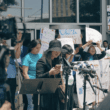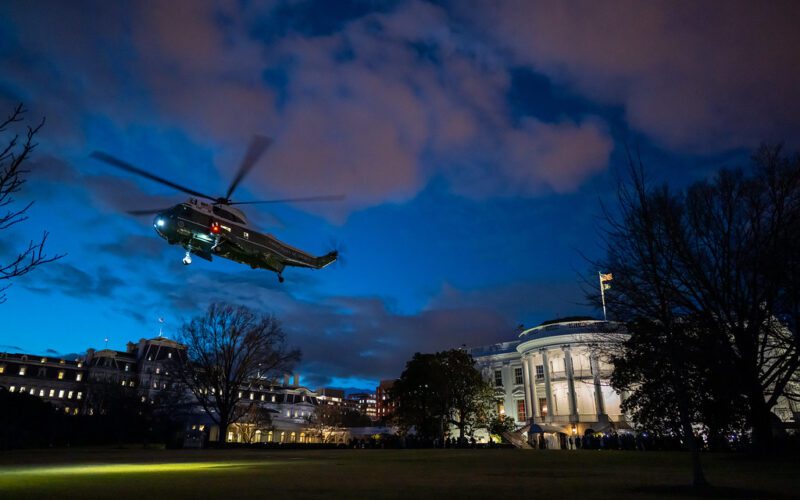Sign up here to receive The Yappie's weekly briefing on Asian American + Pacific Islander politics and support our work by making a donation.
? THE STATE OF COFA NEGOTIATIONS — Three Pacific Island nations and their people are increasing pressure on the Biden administration to take accountability for the U.S.’s nuclear legacy amid negotiations over the Compact of Free Association (COFA).
- COFA, a legal agreement between the United States, the Federated States of Micronesia, Republic of the Marshall Islands, and Palau that has been in place since the 1980s, allows for free migration between the Pacific Island nations and the U.S. in exchange for American military rights over each South Pacific nation’s land.
- What’s on the docket: The agreements will be up for renewal in 2023 between the U.S. and the Marshall Islands and Micronesia, and in 2024 for Palau. Congress must approve any new terms.
- Recovering from U.S. possession: Between 1946 and 1958, the U.S. tested and detonated 67 nuclear bombs on the Marshall Islands or in their waters. Decades later, Marshallese people are still battling the health and environmental impacts of these bomb tests, as are surrounding Pacific Island nations.
- Acknowledging the U.S.’s nuclear legacy and climate change prevention are top priorities, the Marshall Islands’ ambassador to the U.S. Gerald Zackios said at a September summit. Many Marshallese see it as a nonnegotiable if COFA is to be renewed.
?️ AFFIRMATIVE ACTION— The Supreme Court is poised to strike down affirmative action after hearing oral arguments in October last year. If the conservative majority rules against the status quo and finds race-conscious admissions unconstitutional, universities will no longer be able to consider a student’s race in the admissions process.
- Where do AAPIs fit in? In one of the cases, the anti-affirmative action group Students for Fair Admissions—led by Edward Blum—is arguing that Harvard University discriminates against Asian American and white applicants, while favoring Black and Latino students. The lawsuit has largely divided the Asian American community.
- Asian Americans have been positioned against Black and Latino communities in the battle for affirmative action, but data shows race-conscious admission policies benefit Asian Americans, too, NBC News’ Kimmy Yam reports—especially those from low-income and refugee backgrounds.
- Notable: Native Hawaiians and Pacific Islanders are especially underrepresented when colleges are barred from considering race. In the University of California system—which has not been allowed to use race-conscious admissions since California voted to ban affirmative action in 1996—NHPI students (62%) are admitted at a considerably lower rate than Asian Americans (78%), according to a 2022 study released by the Campaign for College Opportunity.
- At the same time, some have said that discrimination against Asian American applicants is real but not inherently intertwined with affirmative action and must be addressed as a separate issue.
- What to watch: The outcome of the high-profile cases could significantly alter the make-up, experience, and intellectual environment of colleges across the country. Justices will likely finalize their opinions this summer.
? BIDEN'S IMMIGRATION POLICIES — With the end of Title 42, a Trump-era immigration policy that allowed U.S. officials to swiftly expel migrants seeking asylum at the southern border, the Biden administration is taking new steps to address the unprecedented surge in migration.
- What this might mean for AAPI immigrants: Biden’s hope for more welcoming policies on immigration might make the pathway to entry easier for some. However, with officials announcing the increased use of pre-pandemic, expedited removal proceedings, his next move remains unclear.
- Indian migration to the U.S.-Mexico border: Between October 2021 and September 2022, Indian migrants encountered border authorities roughly 18,300 times at the U.S. southern border, a record high compared to only 2,600 in the same period a year earlier.
- The influx may have been caused by increasing persecution by the Bharatiya Janata Party and other Hindu nationalists in India on the basis of caste, race, and sexuality, immigration lawyer Deepak Ahluwalia told BBC’s Bernd Debusmann Jr.
- On our radar: The Biden administration has also announced plans to restart the Task Force on New Americans, which was last active under President Barack Obama. The task force will look at improving programs for integration, Associated Press’ Colleen Long reports.
This story appeared as "The Big Story" in The Yappie's Jan. 24, 2022 newsletter.
The Yappie is your must-read briefing on AAPI power, politics, and influence, fiscally sponsored by the Asian American Journalists Association. Make a donation, subscribe, and follow us on Twitter (@theyappie). Send tips and feedback to [email protected].









